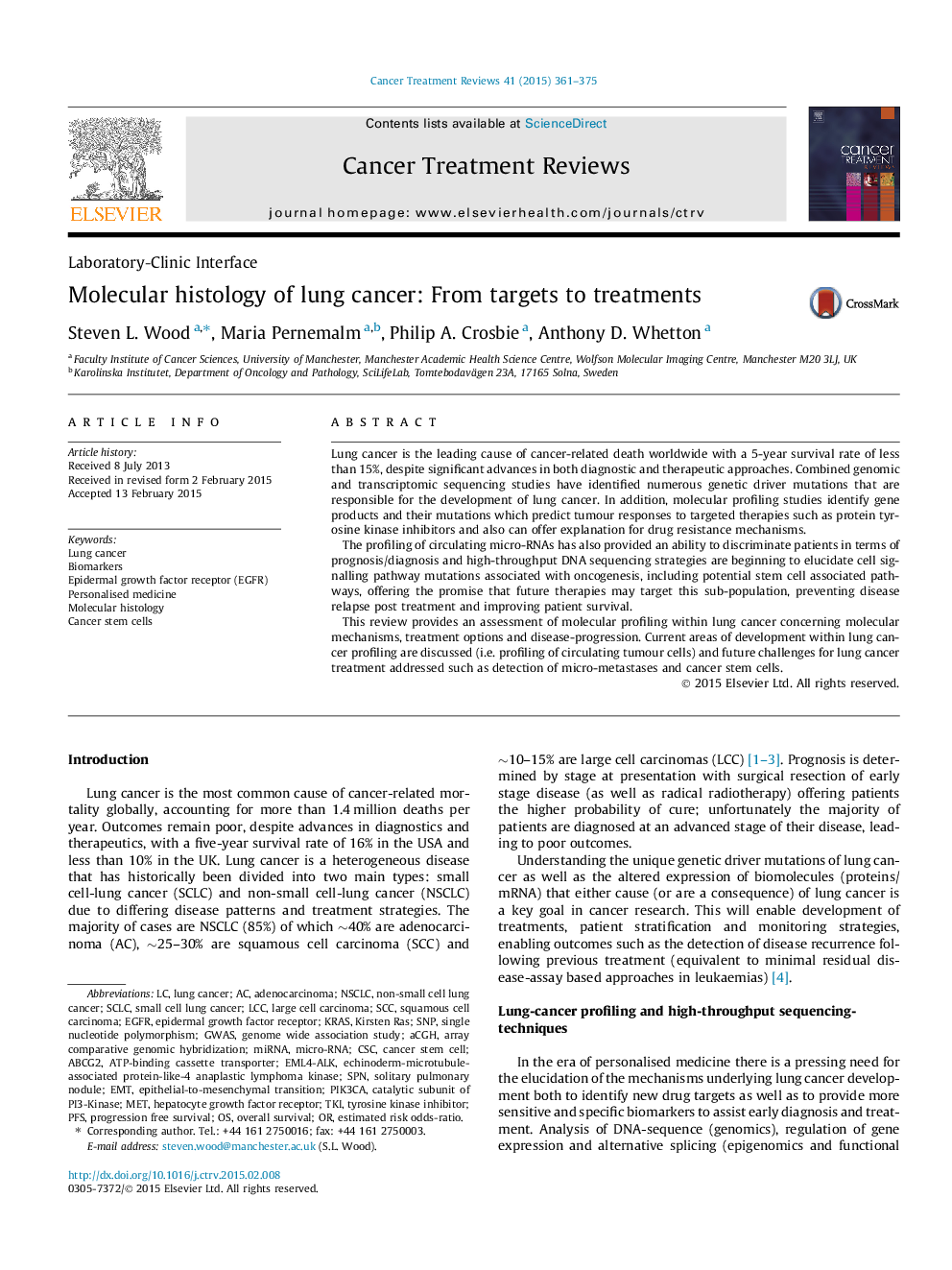| Article ID | Journal | Published Year | Pages | File Type |
|---|---|---|---|---|
| 3979804 | Cancer Treatment Reviews | 2015 | 15 Pages |
•Genomic sequencing has identified key lung cancer driver mutations.•These can provide both prognostic/diagnostic markers as well as potential drug targets.•Molecular alterations inform targeted therapy options.•Future directions: ctDNA and miRNA-based assays, as well as CSC profiling have potential to provide biological insight and markers.
Lung cancer is the leading cause of cancer-related death worldwide with a 5-year survival rate of less than 15%, despite significant advances in both diagnostic and therapeutic approaches. Combined genomic and transcriptomic sequencing studies have identified numerous genetic driver mutations that are responsible for the development of lung cancer. In addition, molecular profiling studies identify gene products and their mutations which predict tumour responses to targeted therapies such as protein tyrosine kinase inhibitors and also can offer explanation for drug resistance mechanisms.The profiling of circulating micro-RNAs has also provided an ability to discriminate patients in terms of prognosis/diagnosis and high-throughput DNA sequencing strategies are beginning to elucidate cell signalling pathway mutations associated with oncogenesis, including potential stem cell associated pathways, offering the promise that future therapies may target this sub-population, preventing disease relapse post treatment and improving patient survival.This review provides an assessment of molecular profiling within lung cancer concerning molecular mechanisms, treatment options and disease-progression. Current areas of development within lung cancer profiling are discussed (i.e. profiling of circulating tumour cells) and future challenges for lung cancer treatment addressed such as detection of micro-metastases and cancer stem cells.
